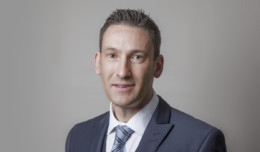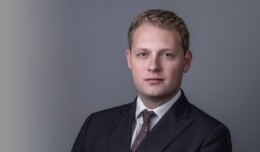Section 17 costs from central funds – an increasingly sticky wicket for prosecutors and the LAA
The recovery of costs incurred by private prosecutors from central funds is permitted under section 17 of the Prosecution of Offences Act 1985 (‘the Act’) for proceedings in respect of indictable offences (or certain either way or summary matters) and for any period when the case was not prosecuted by the Crown Prosecution Service.
Section 17 should be read in conjunction with Part 45 of the Criminal Procedure Rules 2020 . In summary:
- The general rule is that the Court must make an order.
- Where the court considers that the full payment sought is not reasonable, a lesser just and reasonable amount must be substituted.
- The Court may decline to make an order where there is a good reason (the example given within the direction is in the case of a prosecution brought or continued without good cause).
- If there has been misconduct a private prosecutor should not be awarded costs out of central funds.
Private prosecutors are not expected to have to cover the costs of bringing a prosecution and the default position is that recovery from central funds for reasonably incurred costs will be permitted.
Private prosecutors may face a significant outlay of funds prior to commencing proceedings. The preparation of witness statements and exhibits within a process consistent with disclosure and other obligations often results in considerable expense, particularly in cases relating to financial wrongdoing.
The decisions in Football Association Premier League and another v Lord Chancellor [2021] EWHC 755 (QB) and Mirchandani v Lord Chancellor [2021] 1 Cr App R 7 have provided welcome news to private prosecutors in relation to some of the typical costs incurred during private prosecutions.
In FA v Lord Chancellor, the Appellant, who had successfully prosecuted a number of individuals, sought to recover costs under section 17. An assessment of the costs sought was made by the Legal Aid Authority’s (‘the LAA’) Determining Officer (‘the DO’) who determined that no costs should be recovered in relation to work undertaken prior to the commencement of proceedings. This decision was appealed to a costs judge who upheld the decision but certified a point of law for consideration: what approach should a court take when asked to permit the recovery of pre-commencement expenses. The Divisional Court held that the words “incurred in proceedings” do not create a cut-off date prior to the commencement of proceedings and that just and reasonable costs incurred by private prosecutors prior to the commencement of proceedings were recoverable under section 17.
This clarification as regards pre-commencement costs has been echoed when considering costs incurred in respect of enforcement proceedings post-conviction. In Mirchandani v Lord Chancellor, the court found that a private prosecutor could seek the appointment of a receiver in respect of a convicted defendant’s assets, but that recovery from central funds was unavailable on the basis that enforcement proceedings were civil, rather than criminal, and therefore fell outside the remit of section 17. This decision was overturned, and the Court of Appeal confirmed that confiscation proceedings are part of the sentencing process, and that costs are recoverable for enforcement proceedings.
The extent to which either of those authorities will be followed remains to be seen but two recently reported decisions from the Senior Courts Costs Office are instructive of the ongoing attitude of the LAA to applications for costs by a private prosecutor. Fortunately, however, the court has provided clarification of the proper approach to orders for prosecutor’s costs from central funds under section 17 of the Act.
Das UK Holdings Ltd v Asplin and others [2022] EWHC 2214 (SCCO)
This case concerned disbursements in a large private prosecution brought against six defendants for conspiracy to defraud in 2018. The LAA described it as “the largest sum ever claimed in a private prosecution”. Disbursements totalling a little short of £5 million on counsel, PwC, EY and Slaughter & May were reduced to under £1 million by the LAA’s Determining Officer (‘the DO’).
In short, the court allowed the vast majority of the fees claimed by the appellant and reversed the very substantial reductions made the DO. The court was called upon to resolve a number of disputes that are of interest for future cases:
- The use of fixed fee arrangements for counsel, which the DO suggested was “unreasonable for the public purse to bear”. The court gave this reasoning short shrift since the DO had applied the wrong test, which should have been whether the costs were actually and reasonably incurred. The court expressly found that it was reasonable for counsel’s appearance fees in a large, complex financial fraud prosecution, to be agreed and assessed by reference to fixed rates. The reasonableness of the fee was to be determined at the date of its agreement, not with reference to subsequent events looking at whether leading counsel in fact attended on every day of the trial. The appellant was entirely successful on this issue.
- For junior counsel the DO allowed either half of senior junior counsel’s rate, or a quarter of leading counsel’s rate. The court agreed this approach was unsustainable and allowed the appellant’s appeal.
- A ‘Singh discount’ that had been applied to disclosure counsel’s fees was described by the court as “perhaps the most problematic aspect of the Determining Officer’s consideration”. The principle arising from R v SCCO ex p Singh, is that in assessing a solicitor’s bill of costs in a criminal matter, a DO is entitled after carrying out an audit exercise to stand back and make a decision as to the overall validity of the claim. The court concluded that the DO’s reasoning was not sustainable, it was only briefly summarised in two sentences and elided the roles of disclosure counsel and PwC in managing the e-disclosure platform. Disclosure counsel’s fees were allowed as claimed.
- The court agreed with the DO that a noting brief was not reasonably recoverable where three trial counsel had been instructed.
- £1.4 million was incurred by PwC in managing the disclosure exercise, which sifted 4.3 million documents. The DO allowed for just £80,250. The court found that the DO had wrongly imported a test of proportionality, where the only test was one of reasonableness. Reference to guideline solicitors’ rates for work done by PwC was incorrect. Referring to the guidance in Deutsche Bank AG v Sebastian Holdings, which in short sets out that disbursements on professionals are not generally billed in the same detail as solicitors, and the court’s approach should accordingly be one of sensible approximation, the court allowed the vast majority of PwC’s fees.
- The costs of the prosecutor’s Chief Risk and Compliance Officer were investigation costs, which as confirmed by Football Association Premier League and anor v Lord Chancellor, are costs in the proceedings and therefore recoverable.
- EY’s investigation fees of £1,412,729, again applying the approach in Deutsche Bank AG v Sebastian Holdings, were allowed but only to the extent of £1,000,000 (the DO had not allowed any fees on the basis of proportionality, and a lack of evidence as to the breakdown of fees).
R (Khassenov) v Kulich [2022] EWHC 2845 (SCCO)
This case concerned costs incurred in POCA proceedings following conviction, which were reduced by almost half by the DO from £209,197.51 to £122,896.21.
The main issue concerned a Singh discount (see (iii) above) applied to the solicitors’ fees which were said to be disproportionately high. The LAA pointed out that there was a theme of decisions against the same solicitors where their costs had variously been described as “eye-watering” and “quite extraordinary” and reduced accordingly.
The LAA also gave multiple examples of discrepancies between the costs schedules and attendance notes provided. There were relatively few contemporaneous attendance notes, and, where they were provided, they were often for substantially lower times than the work logs.
On the other hand, the Appellant argued that the Singh discount had been incorrectly applied. The DO had undertaken a line by line determination of the bill (‘the audit phase’), and then stood back and applied a Singh discount, reducing the 734.3 hours to 300. The Appellant pointed out, and the court agreed, that it was not clear from the DO’s determination what the figures after the audit phase had been (the decision only referred to the audit phase having been undertaken, not its result), and so it was unclear what the Singh discount actually was.
The Court agreed that the LAA had fallen into error. First, before applying the Singh discount, the LAA was required to come to a total figure after the audit phase, to which a further discount could be applied if appropriate. The LAA had failed to do so.
Second, the LAA had failed to undertake a categorisation exercise, to ensure that the Singh discount was applied in a comprehensible manner. The Singh discount can be applied to each category (e.g. “work on skeleton arguments”, or “undertaking disclosure”) but not to the solicitor’s costs as a whole.
The decision was remitted to the LAA to undertake the Singh exercise correctly. The court ruled it was impossible to tell whether the Appellant’s other complaints (an unfavourable comparison with another POCA case, and disallowed work in certain categories), were made out until the Singh exercise had been properly undertaken.
Lessons learned
There will no doubt be many readers of this article who have extensive experience in private prosecutions and applications under section 17, but to whom Singh discounts and the like will be less familiar. Putting some of the detail of the above decisions aside, it is suggested the following can be gleaned:
- The LAA are clearly conscious of the increasing (in frequency and value) costs applications being submitted for private prosecutions in recent years.
- Private prosecutors can therefore expect their applications under section 17 to be robustly examined by the LAA, and often subject to substantial reductions (in a very summary manner if the above two decisions are not heeded by DOs).
- Conversely, the Senior Court Costs Office are more experienced in assessing claims for very substantial sums, and not at all reluctant to set the LAA right.
- Where costs are properly evidenced, section 17 claims are still governed by the principle that a private prosecutor should be compensated for his/her reasonably incurred legal expenses.
- Prosecutors should not be afraid to challenge the LAA’s approach where it falls into error.
Oliver Glasgow KC and Lewis MacDonald
Categories: Blog



